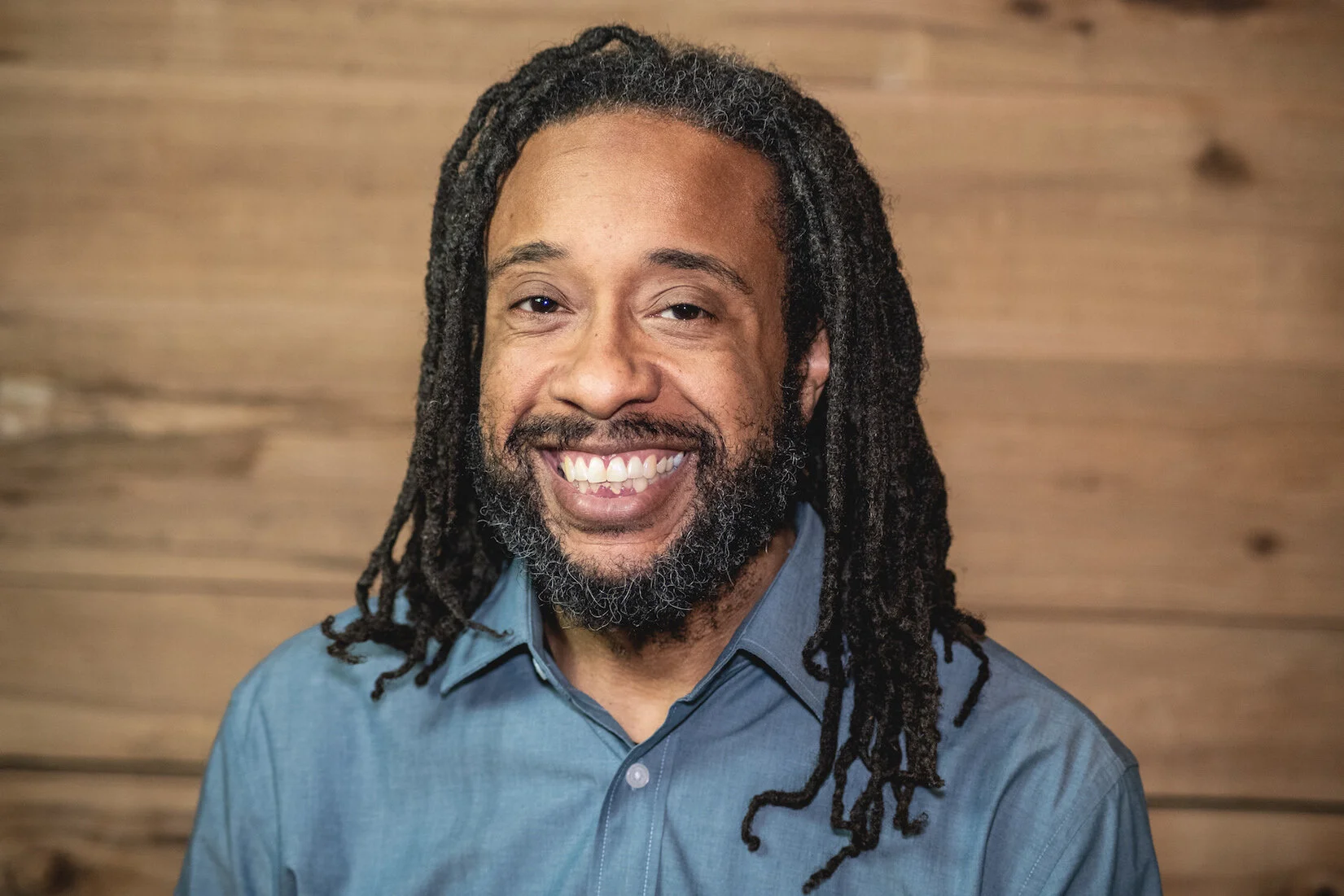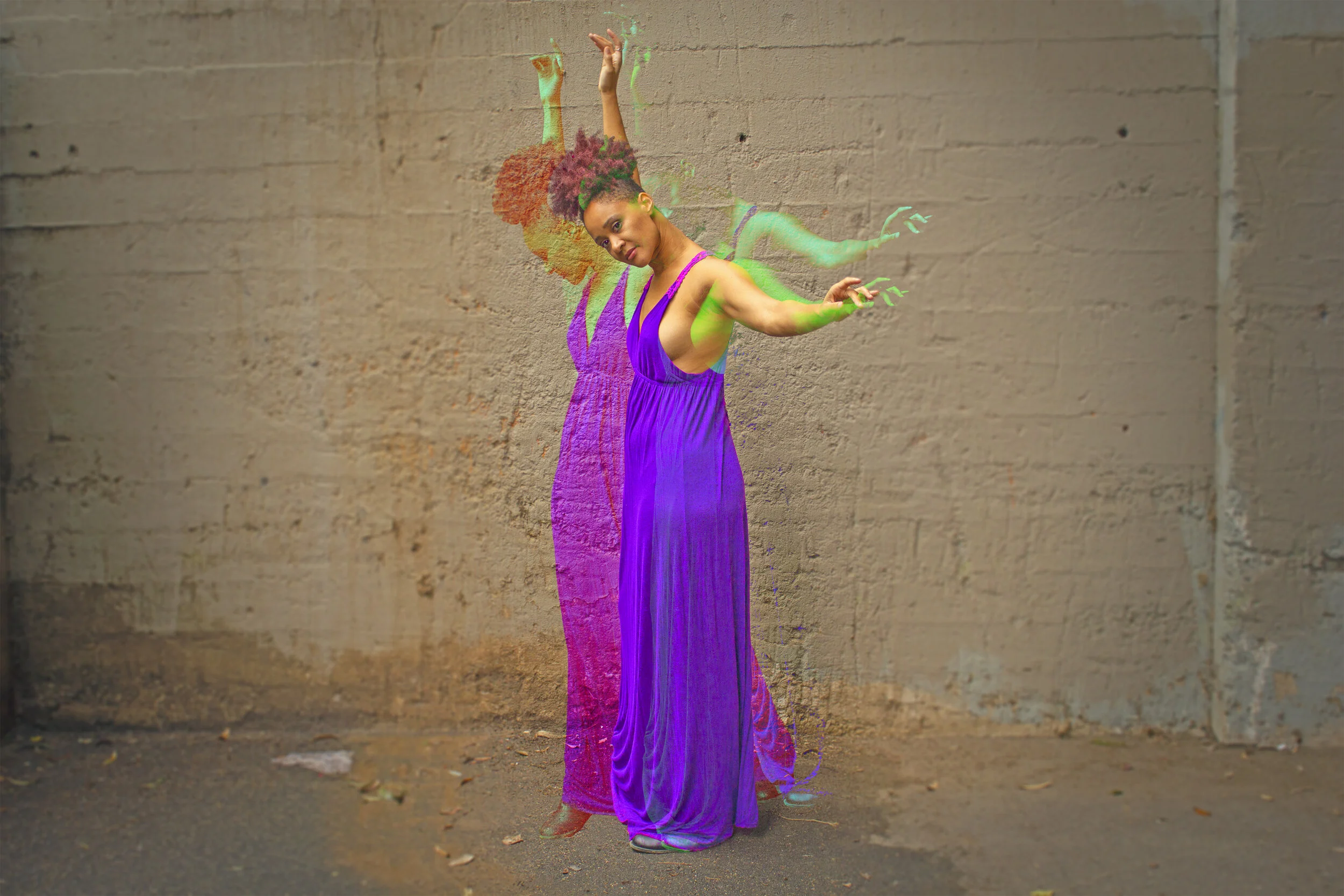Jon Royal
Director, actor and teaching artist Jon Royal works across the country, splitting the majority of his time between Nashville, where his production of Pipeline was the 2020 pick for best contemporary drama by the Nashville Scene, and Los Angeles, where he works with Will Power to Youth, helping young people at the poverty threshold to build their own adaptation of a Shakespeare play in seven weeks.
Or, that’s what he does when 2020 isn’t throwing a big, hairy pandemic. This year Royal, like us all, is spending a lot of time on Zoom. “Every single piece of income that I have is dependent on people meeting together,” he laughs. “It's been challenging, but also there are just some really nice moments I experience as part of a group of artists working with young people. I'm watching how young people have community online. And in knowing what's possible and seeing them do it, it's been really inspirational.”
“I want to make spaces where people can show up fully as their whole selves … I think it's insanity to consistently normalize your own marginalization.”
Jon Royal grew up in a post-officially-but-still-pretty-much-unofficially segregated Nashville. “I was born in 1976, and I went to I went to school … at a very interesting time,” he explains. “I went to school and was educated by a lot of educators, particularly Black educators, who had gone to college in the ’60s … I never lived outside of a Black enclave. And the cool thing about being in a Black enclave is that there's more class mix … from the time I was three until I was 15. I lived next door to a Black dentist. And across the street, there were Black college professors, and I go one block over, and then it's my friends in the projects.”
“I say all of that is because if you are in that situation, and you have a parent who works, who goes to a job, and when you go to school, and they realize that about you, they say ‘well, you have no excuse not to be doing every single thing. You have no excuse not to be making good grades showing up. You have … no excuse to be acting a fool.”
Royal’s coming of age as an artist began with Black Taffeta and Burlap, a Nashville theatre company founded in 1990 by Stella Reed. “It was the absolute perfect place for me,” he says. “And it was the synthesis of all of these journeys. It was like the blueprint because it was a company full of people dedicated to telling Black stories — everybody in the company is not specifically Black. But everyone there was there to tell Black stories. And it was perfect, because I was able to get introduced to so many different writers and authors and musicians and things like that on the page. But also working with people and community. It was such a family.”
In the early stages of his career, in the 1990s, he cut his teeth as both actor and director at Middle Tennessee State University, going on to win the ACTF student director award and gaining an opportunity to work with the legendary designer Ming Cho Lee. Long before he would direct Eddie George in Topdog/Underdog or work with Liesl Tommy on Party People at the Public, Jon began to work professionally in Nashville outside Black Taffeta and Burlap. There he experienced the stark racial divide in not only Nashville theatre, but all American theatre — all of it a result of our long and ugly history of race, and the particularly vicious power dynamics of whiteness.
“I remember being in Black Taffeta and Burlap, and I feel like I always knew it, but I was insulated because I was in mostly Black communities,” he explains. “And I realized that it was possible in this country for white people to be born, go to school, have a family, work a whole job, retire and die, and never consider who I was as a Black person. And my life the work of my ancestors. It is a privileged insulation that white people can have in this culture that I don't have. I didn't have this all this stuff, the words that are flying around right now about white supremacy and white-dominant culture and white privilege and all these things. But I knew that I wanted, I knew I was motivated to make art that says, ‘I'm here. I'm here. I exist … which is why I talked about being being a child being taught by people who were students in the ’60s and early ’70s. I'm getting back to that responsibility community. That’s my voice. … I am not a subset. I am not a sub-genre.”
To be relevant and valuable for a post-COVID, post-racial-reckoning world, the American theatre structure must be dismantled and built anew with fresh models not only for inclusion but also for funding and community involvement. In Royal’s view, the community conversation takes precedence over even the performance itself.
“I've had another shift recently, the last few years, because for so long, I thought, just to quote Shakespeare, ‘The play is the thing.’” he says. “So we have all these ideas and all these things going, and we will make a play, we will open up the doors, and people will come to this play, and they will engage intellectually and spiritually, with this work of art and these collaborators and this piece, and they will go out into the world … what I realize is that the entire reason we tell these stories and put them on stages is because these are conversations we're already having a community. And the play is not the thing. What is happening in the community, because of those conversations, are the thing. And this is just one way to get at it. This is just just one way … people are going to shudder with this, but attendance at this play is not the be-all end-all, ultimate experience. You know what I'm saying?”
If we rethink the purpose of the play in the greater scheme of a theatre’s role in a community, then we also must rethink our funding models and our offerings, which means more opportunity for both engagement and employment. It’s an exciting prospect.
“I want to make spaces where people can show up fully as their whole selves,” Royal says. “I've tried to guide and pattern everything towards that. That's my voice — creating spaces because I realized that myself as an artist, specifically as a Black person in this world, it is very challenging to consistently be asked to show up, but not show up as your full self. And then also to get rewarded for not showing up it also is maddening. It's something that, as I've gotten older, I want to participate in less and less … I have to I have to prioritize myself and my own sanity. I think it's insanity to consistently normalize your own marginalization … Why am I participating in that? It just hurts me, and no amount of money can I back what I'm losing.”






